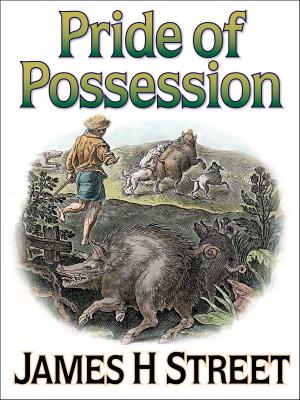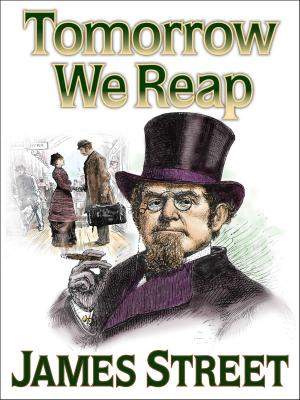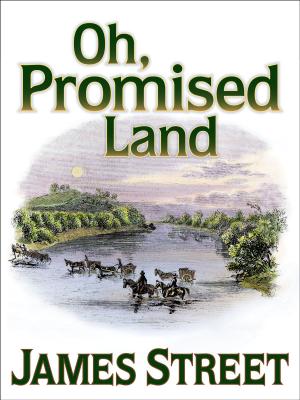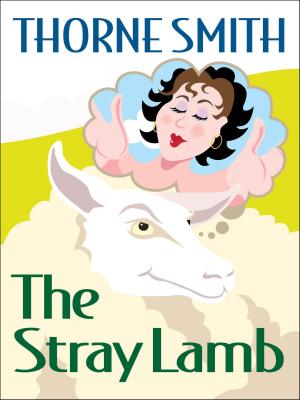| Author: | Phil Stong | ISBN: | 9781618867735 |
| Publisher: | eNet Press Inc. | Publication: | June 18, 2015 |
| Imprint: | Language: | English |
| Author: | Phil Stong |
| ISBN: | 9781618867735 |
| Publisher: | eNet Press Inc. |
| Publication: | June 18, 2015 |
| Imprint: | |
| Language: | English |
Separated from her husband in New York and between jobs, Louise Storr finds herself at the steps of her grandfather's Iowa farm. Grandpa Storr, full of years and wisdom, is a patriarch who has been the master of the Storr lands for generations. Witty and grand, he rules his homestead with a serene indifference to the petulant brood of relatives who fill the household. Grandpa Storr immediately detects in Louise the ancient Storr qualities of candor, independence and wit which have been so sadly lacking in the rest of the Storrhaven brood. While some members of the family and community look on with growing ill-will, Grandpa and Louise become very fond of oAs a boy, the author Phil Stong spent many hours on a farm owned by his maternal grandparents ― the Duffields ― where he walked the land, fished in the creek, played in the dairy barn, chored for his grandparents, and otherwise immersed himself in the wonders and wisdom of rural life. Linwood Farm, as it was called, was located just three miles west of Keosauqua across the Des Moines River on the ridge line in Pittsburg. The farm remained in the Duffield family until it was sold during World War I. But in 1932, Stong bought back the family's historic farm which he owned until he died in 1957.
Phil Stong's experiences on Linwood Farm were later captured in many of his literary works, particularly in his books for young people. The Iowa Kids 1910 series is a collection of three unforgettable stories ― humorously captured and simply told.
ne another. The young woman's marital difficulties are the subject of much gossip and when she takes to riding in the country with a married neighbor and accompanying him to dances, the family's ill-will turns to malevolence.
The author has created an enormously life-like gallery of Iowans including a greedy and wasp-tongued niece by marriage, her lazy farm lawyer husband, a vague and foolish step-daughter, and a reliable farmhand fond of corn whiskey. Stong's sensitivity towards his characters and his obvious love of the farmland that sustains them, make Stranger's Return a classic well-worth rediscovery.
Stranger's Return was also made into a popular movie by MGM starring Lionel Barrymore and Miriam Hopkins.
Separated from her husband in New York and between jobs, Louise Storr finds herself at the steps of her grandfather's Iowa farm. Grandpa Storr, full of years and wisdom, is a patriarch who has been the master of the Storr lands for generations. Witty and grand, he rules his homestead with a serene indifference to the petulant brood of relatives who fill the household. Grandpa Storr immediately detects in Louise the ancient Storr qualities of candor, independence and wit which have been so sadly lacking in the rest of the Storrhaven brood. While some members of the family and community look on with growing ill-will, Grandpa and Louise become very fond of oAs a boy, the author Phil Stong spent many hours on a farm owned by his maternal grandparents ― the Duffields ― where he walked the land, fished in the creek, played in the dairy barn, chored for his grandparents, and otherwise immersed himself in the wonders and wisdom of rural life. Linwood Farm, as it was called, was located just three miles west of Keosauqua across the Des Moines River on the ridge line in Pittsburg. The farm remained in the Duffield family until it was sold during World War I. But in 1932, Stong bought back the family's historic farm which he owned until he died in 1957.
Phil Stong's experiences on Linwood Farm were later captured in many of his literary works, particularly in his books for young people. The Iowa Kids 1910 series is a collection of three unforgettable stories ― humorously captured and simply told.
ne another. The young woman's marital difficulties are the subject of much gossip and when she takes to riding in the country with a married neighbor and accompanying him to dances, the family's ill-will turns to malevolence.
The author has created an enormously life-like gallery of Iowans including a greedy and wasp-tongued niece by marriage, her lazy farm lawyer husband, a vague and foolish step-daughter, and a reliable farmhand fond of corn whiskey. Stong's sensitivity towards his characters and his obvious love of the farmland that sustains them, make Stranger's Return a classic well-worth rediscovery.
Stranger's Return was also made into a popular movie by MGM starring Lionel Barrymore and Miriam Hopkins.















